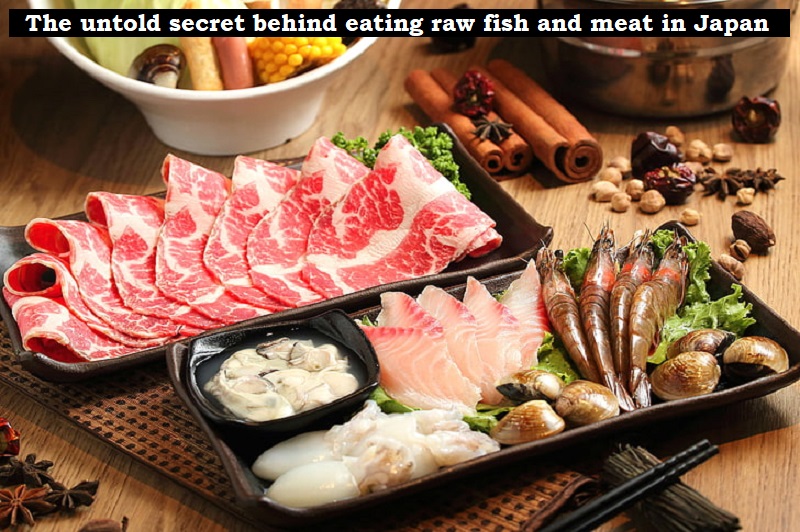
Love Japanese food and their decadent treats? But have you ever wondered why the majority of Japanese foods conceal raw meat or fish with potent flavours and fermented toppings? Here’s everything you need to know about the Japanese custom of consuming raw meat and fish. Read on…
The majority of delicacies are cooked using fresh ingredients, including meat and fish, according to Japanese culinary tradition. The majority of fish and meat processing happens immediately after the fish is caught or the meat is chopped. In addition, the dishes are prepared with flavorful spices, herbs, sauces like wasabi, soy sauce, and others that have potent antibacterial characteristics that aid in warding off bacteria and pathogens. Since the foods are consumed fresh without refrigeration, the use of strong spices, seasonings and condiments make it fit for consumption.
Unquestionably one of the healthiest Asian cuisines, Japanese cuisine uses fresh fruit, locally obtained fish, pork, fermented sauces, rice, chiles, and sweet ingredients in the majority of its specialties. But one aspect of Japanese cuisine that most international gourmands can connect to is the usage of raw meat and fish, which is unique compared to other culinary traditions from all over the world. However, why do they consume raw meat or fish, and is it healthy?
Consuming raw fish or meat that has been well cleaned, sanitised, and marinated with the right ingredients can make it safe. In some ways eating raw meat fish can be good for health, this is because cooking, frying, roasting meat or fish can often reduce its nutritional value by breaking down proteins and healthy fats. That’s not all, cooking or frying meat fish can also lead to formation of harmful compounds like Heterocyclic Amines, which may increase the risk of several types of cancers.
It’s interesting to note that as a result of Japanese cuisine, individuals have developed a taste for eating fresh, well-seasoned meats and fish.
Japanese food preparations and their meticulous attention to detail are what make it one of the healthiest cuisines. For example, foods are cleaned and washed several times to ensure that they do not contain any harmful substances before being marinated with spices and fermented foods to prevent the growth of bacteria.

Post Your Comments